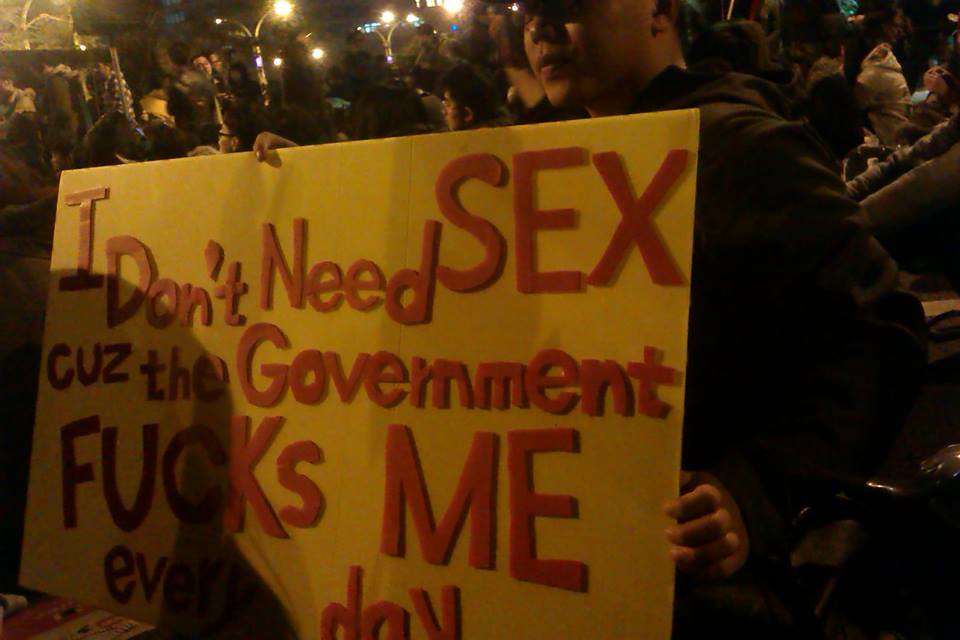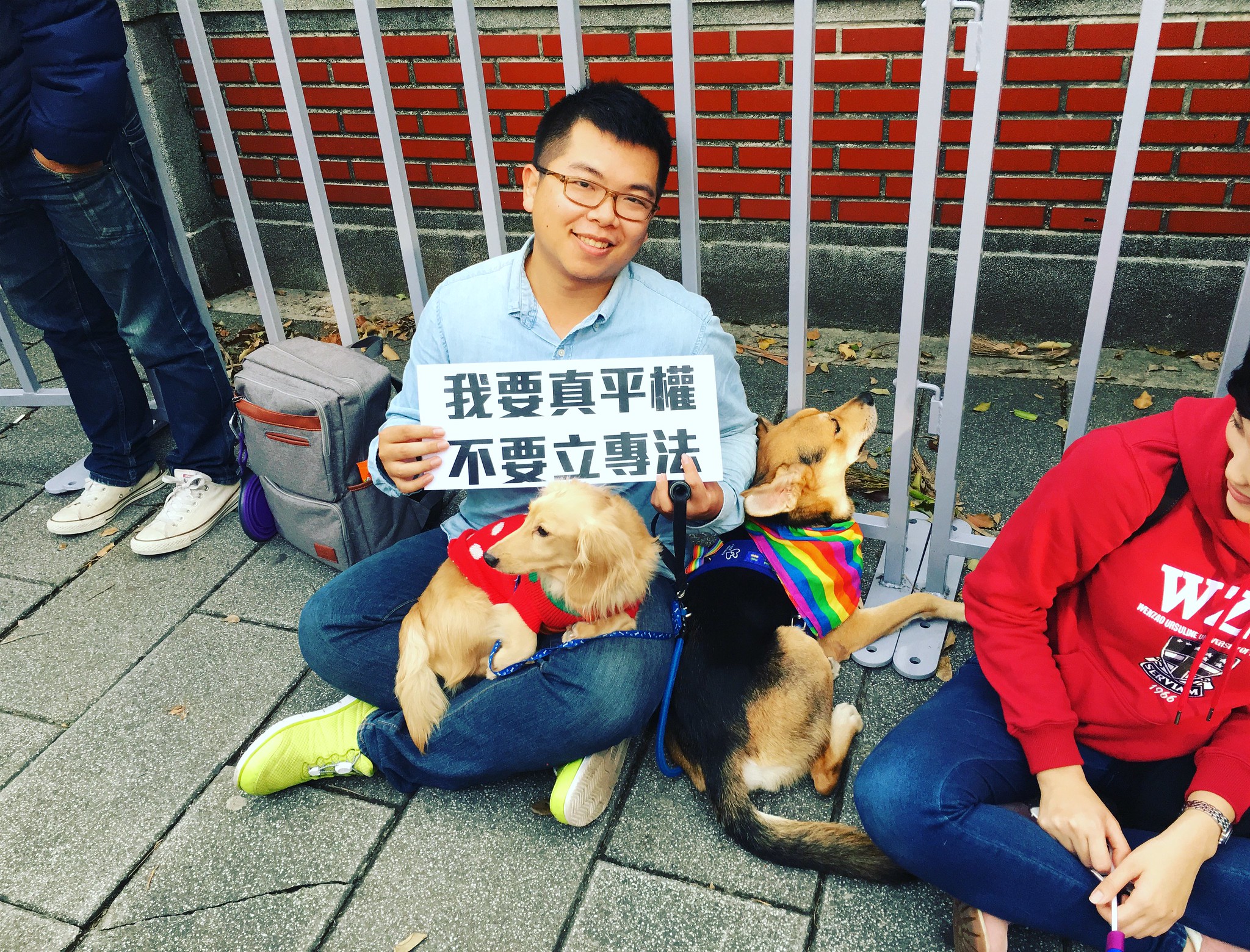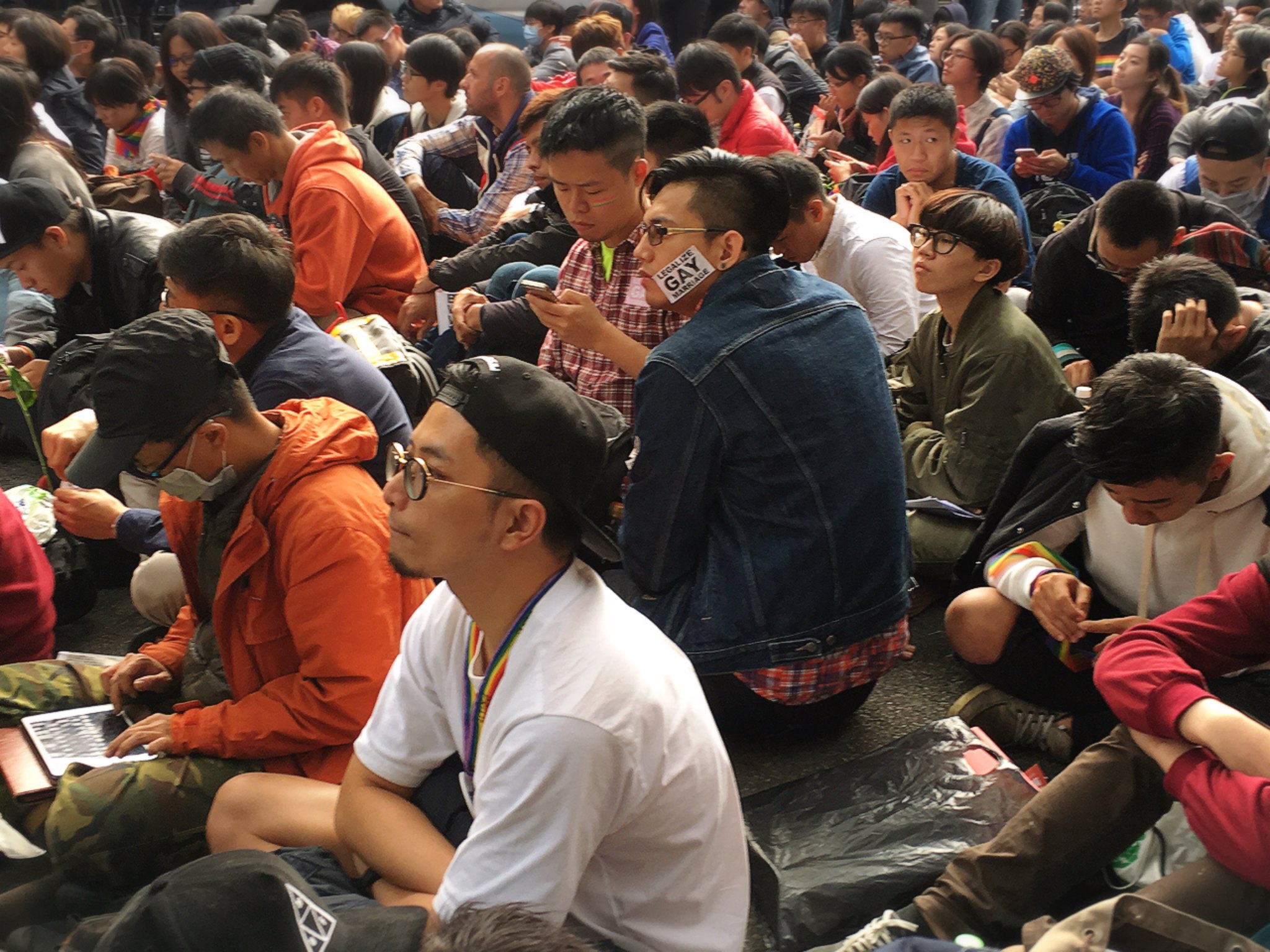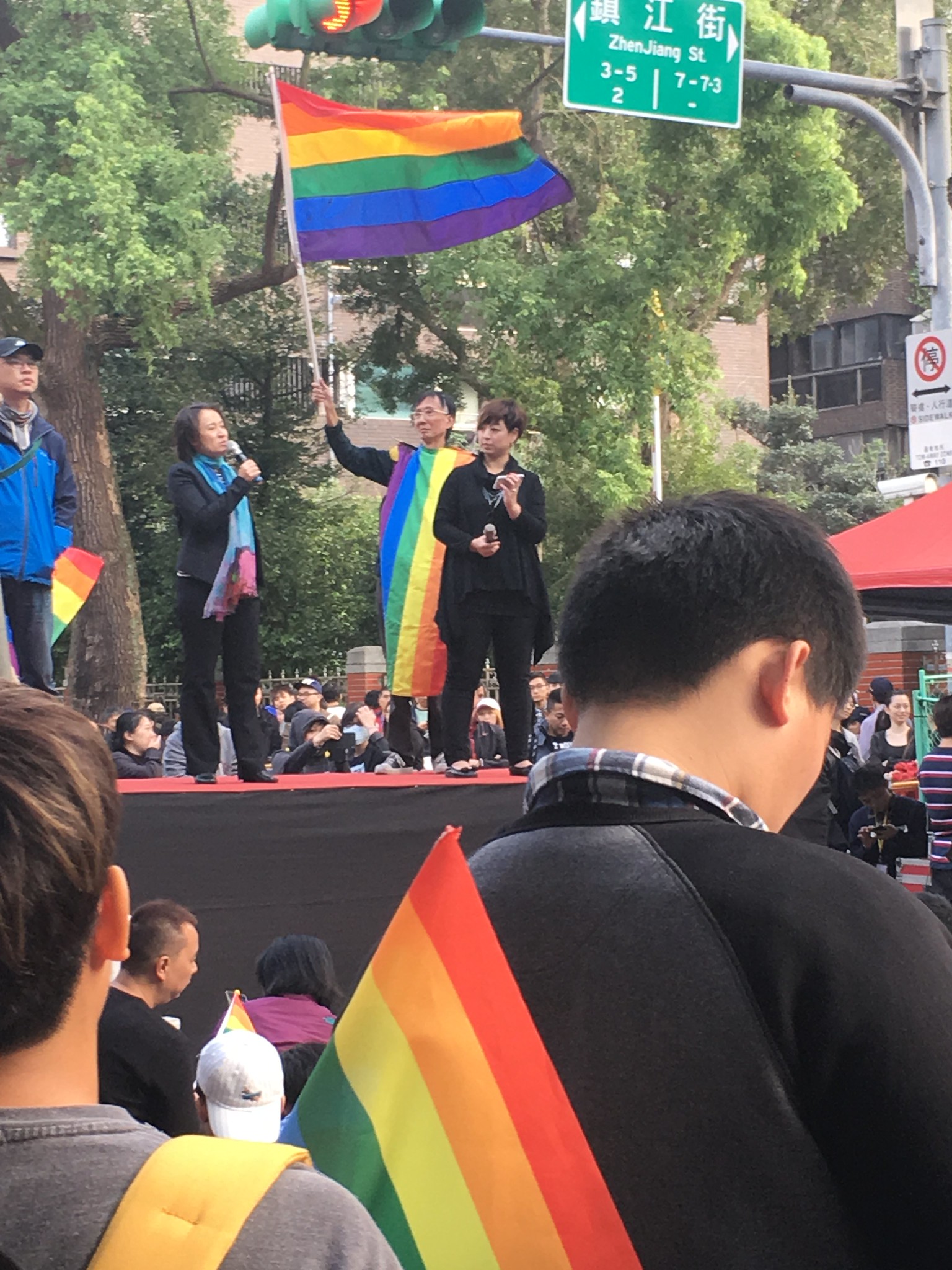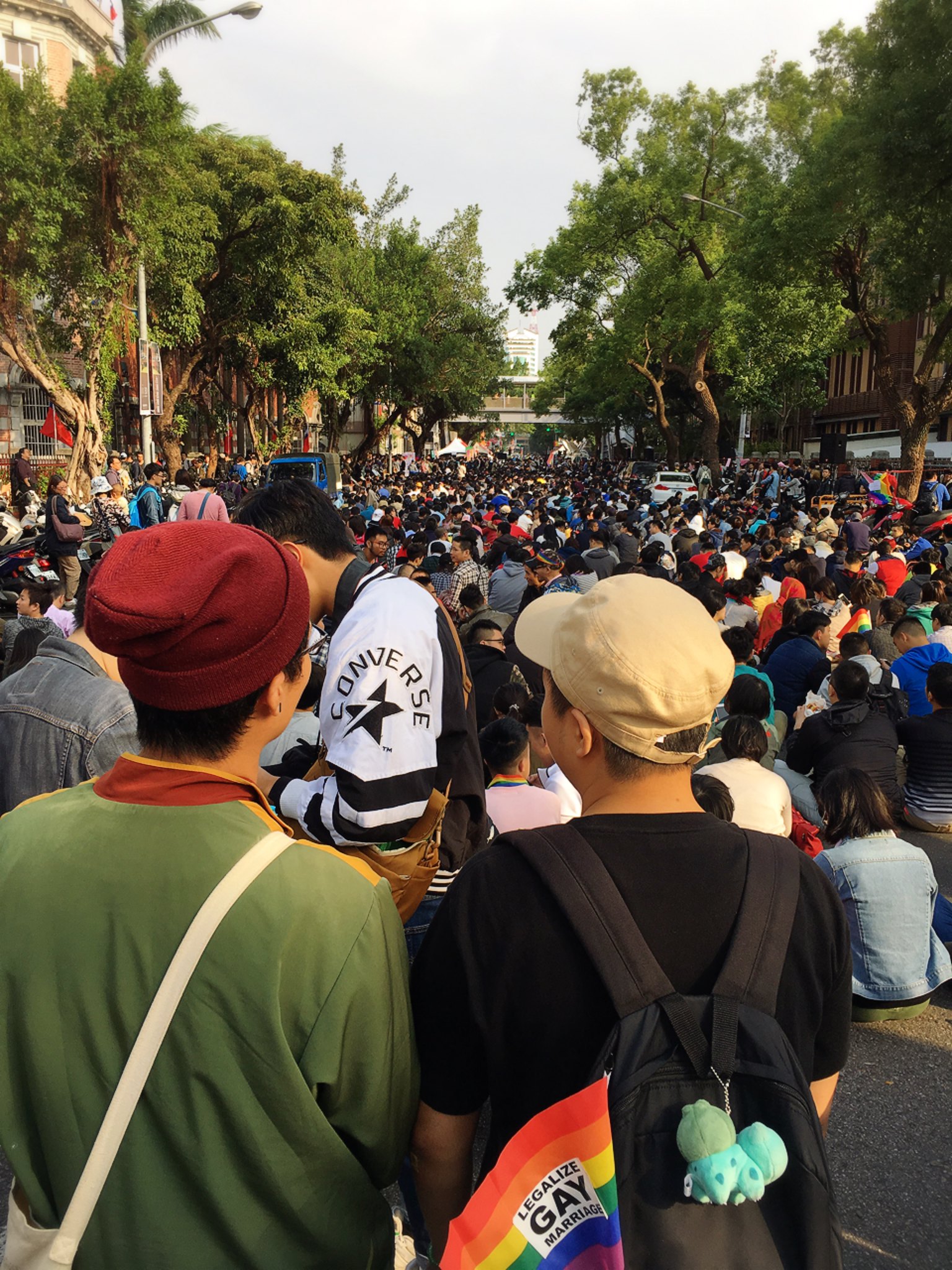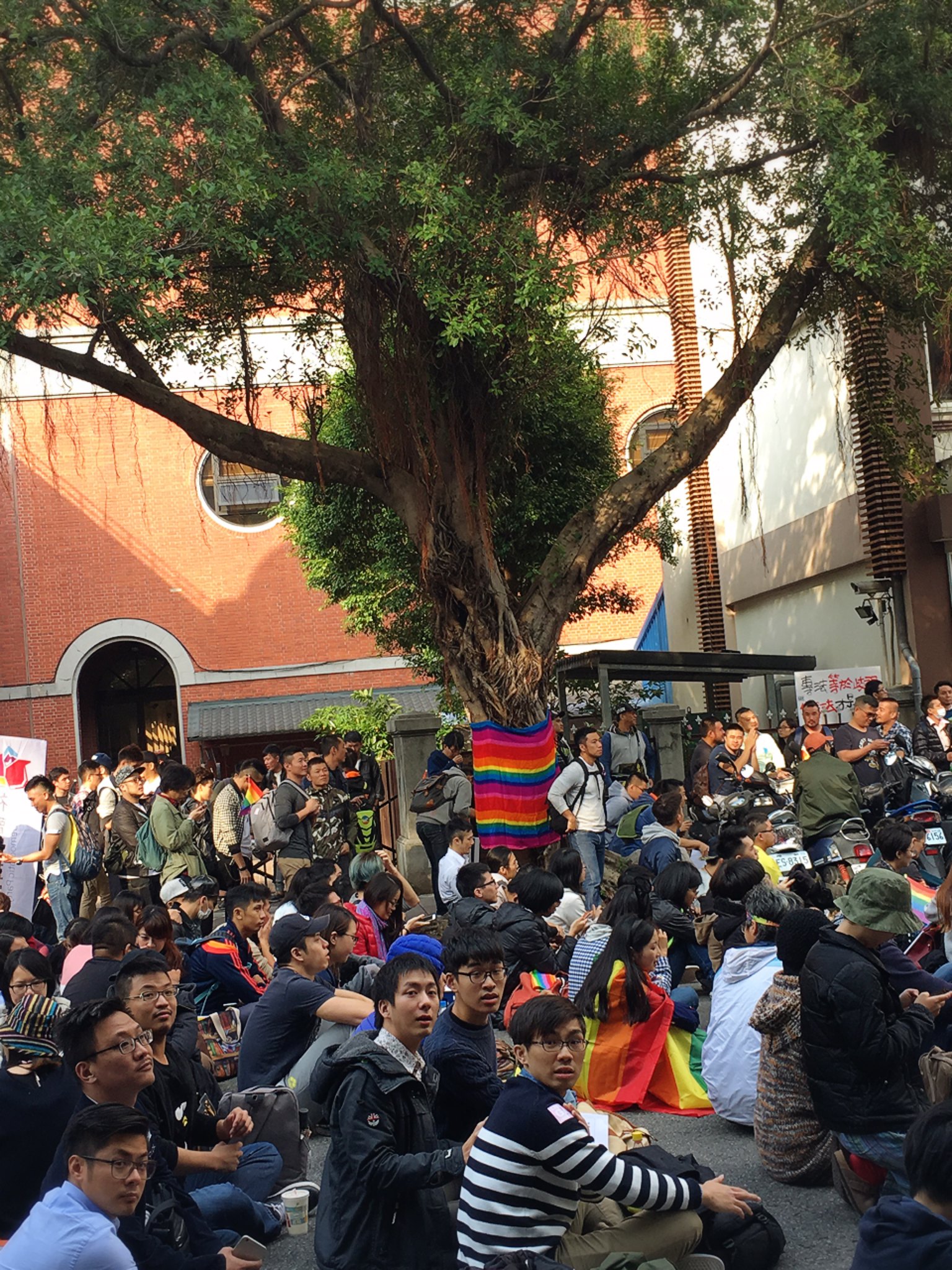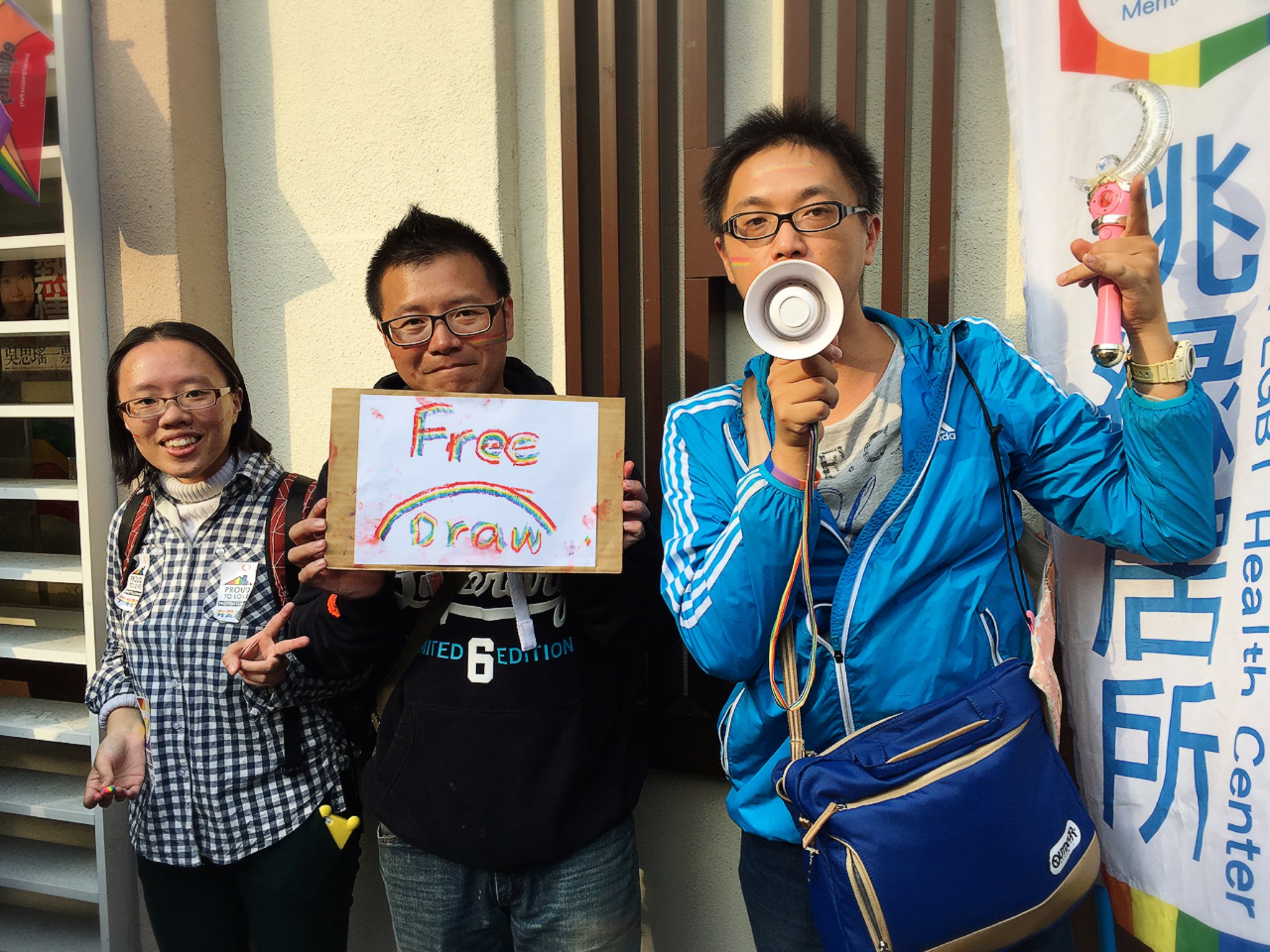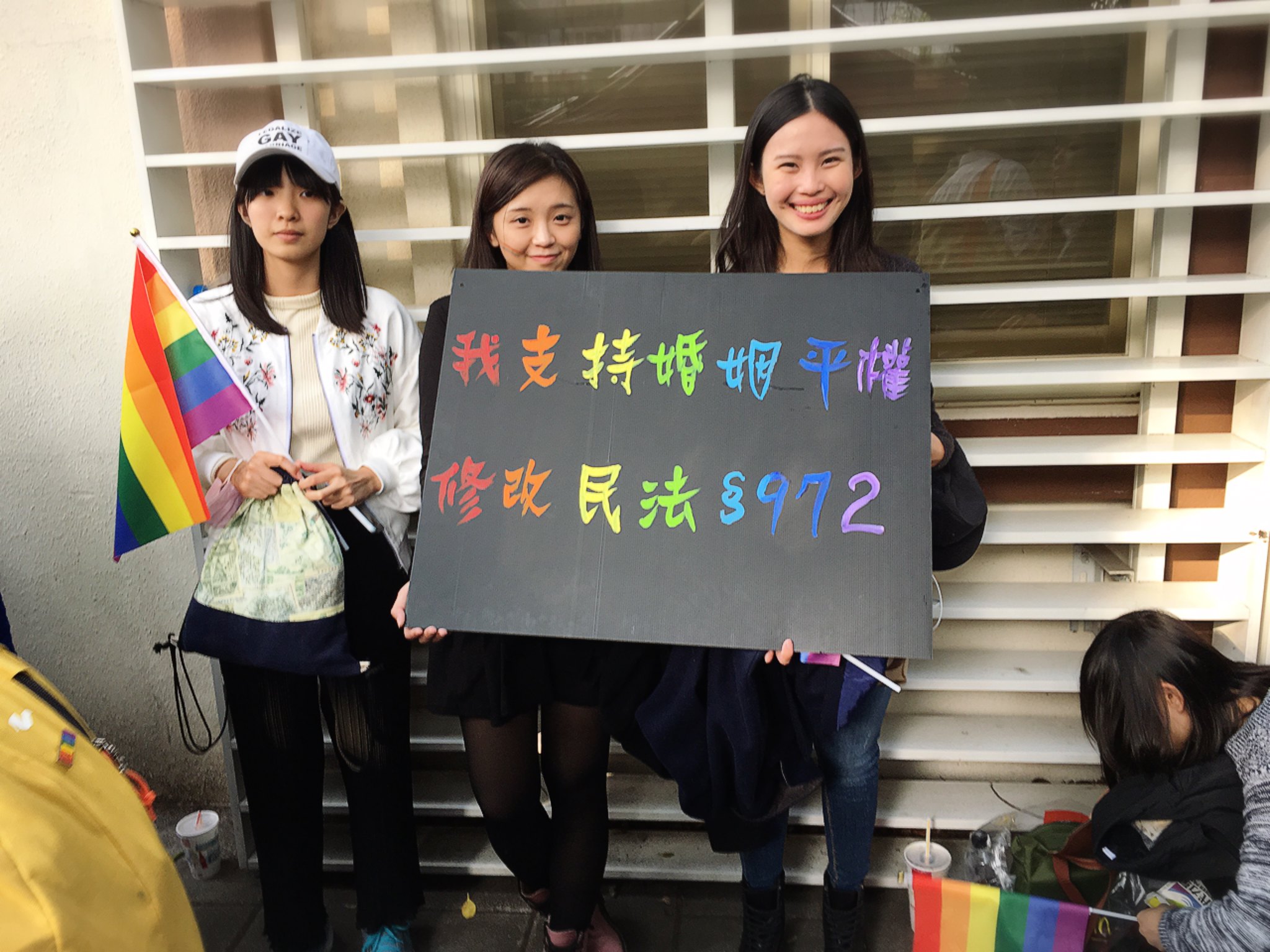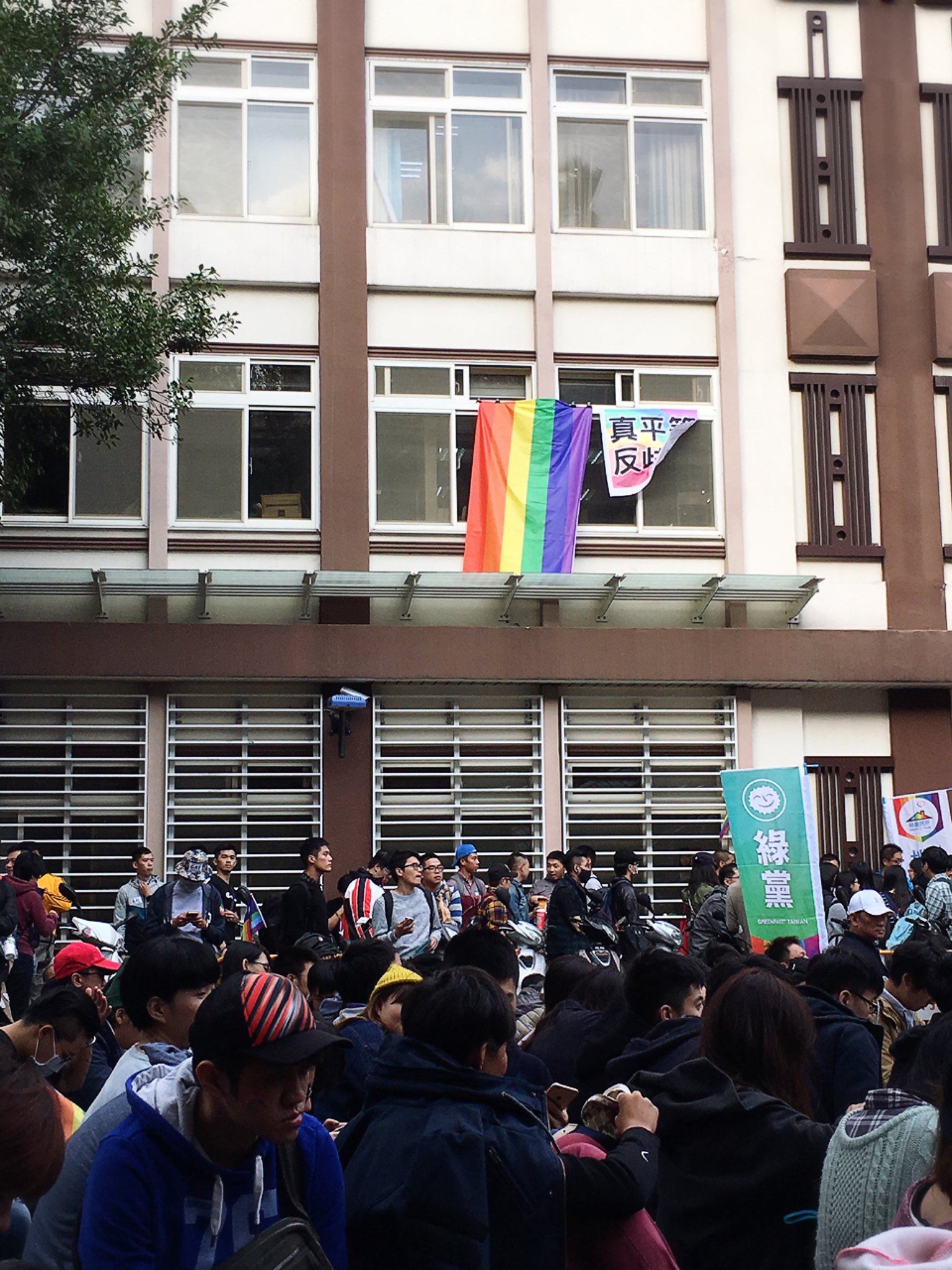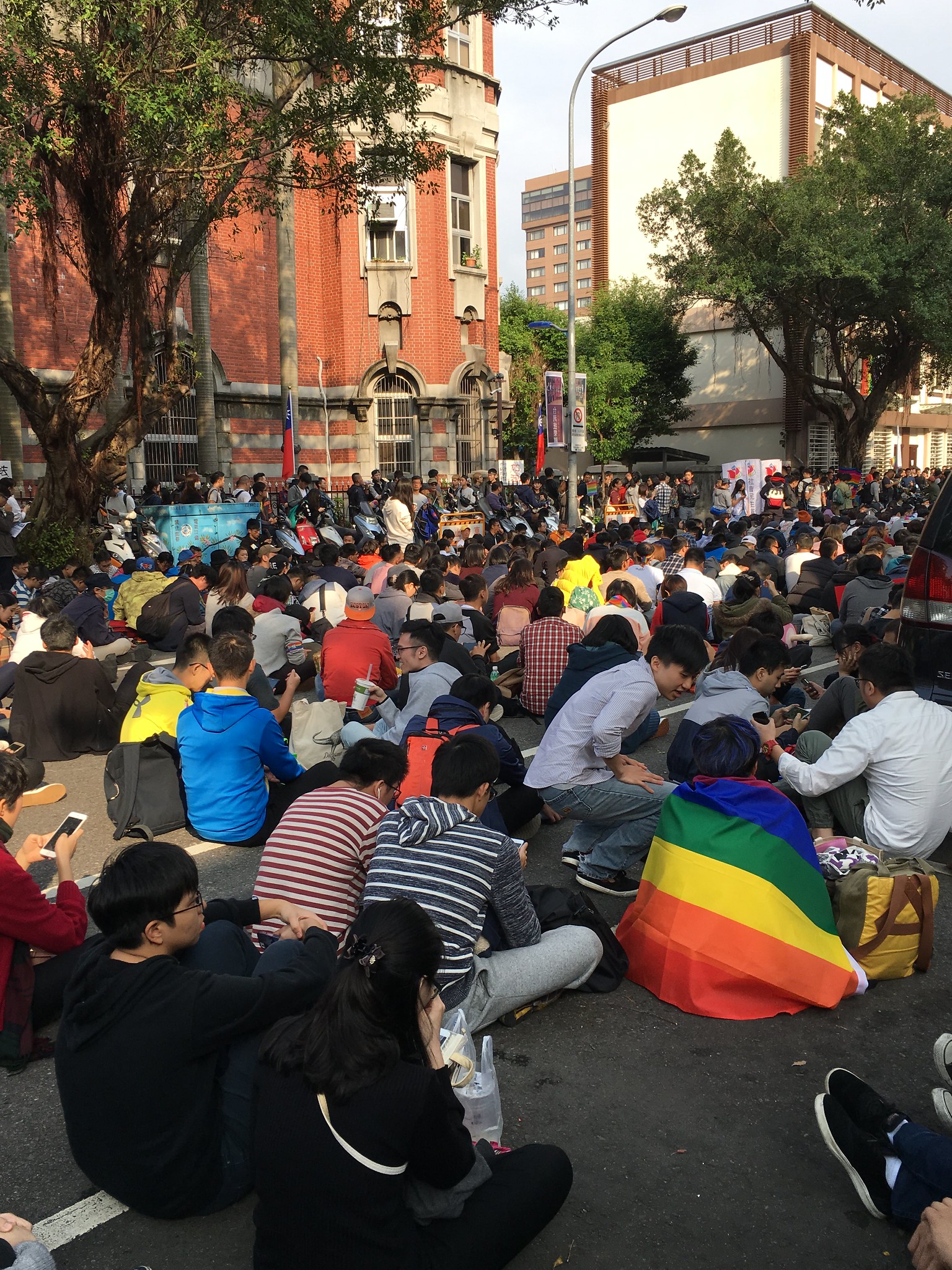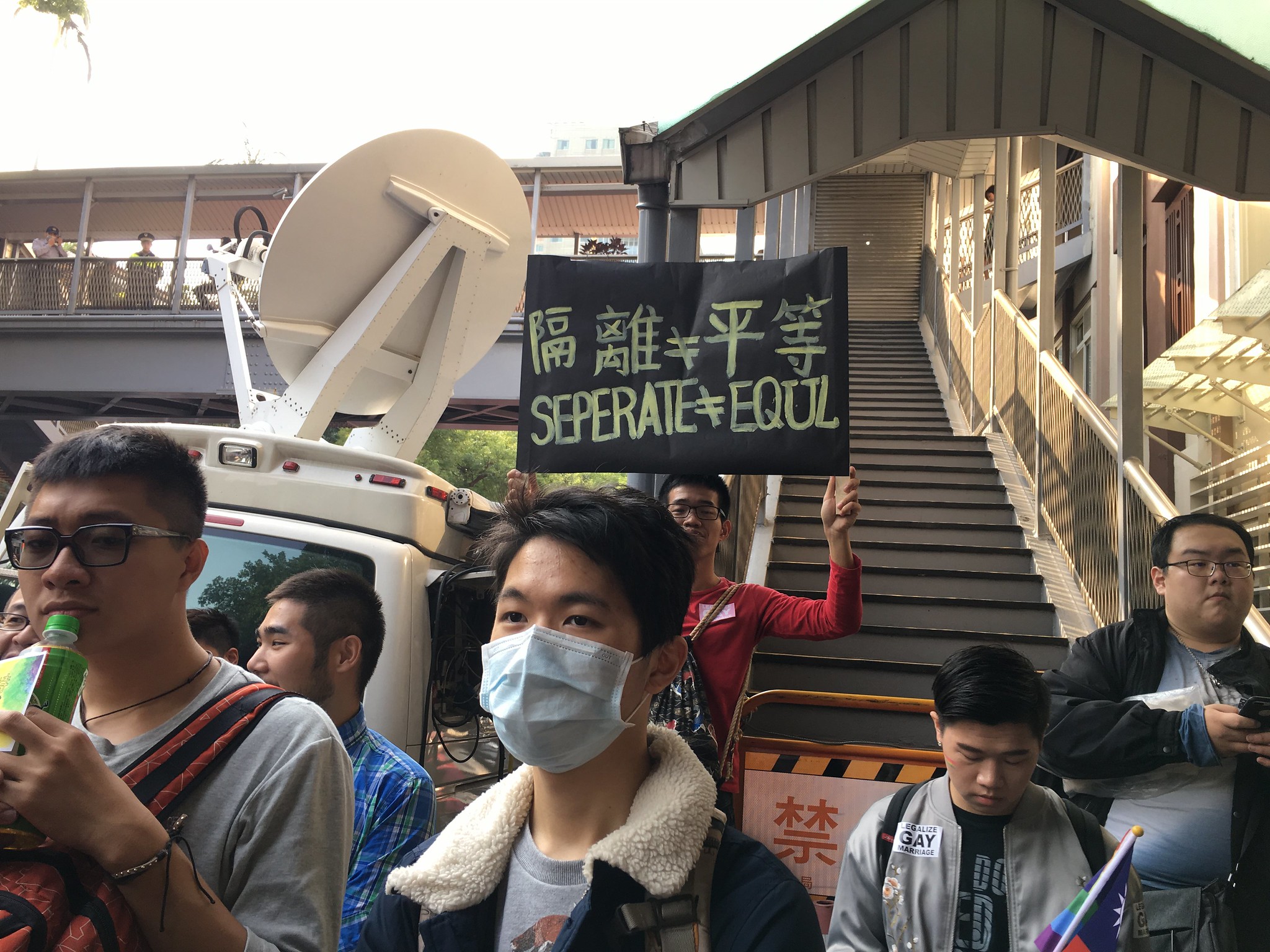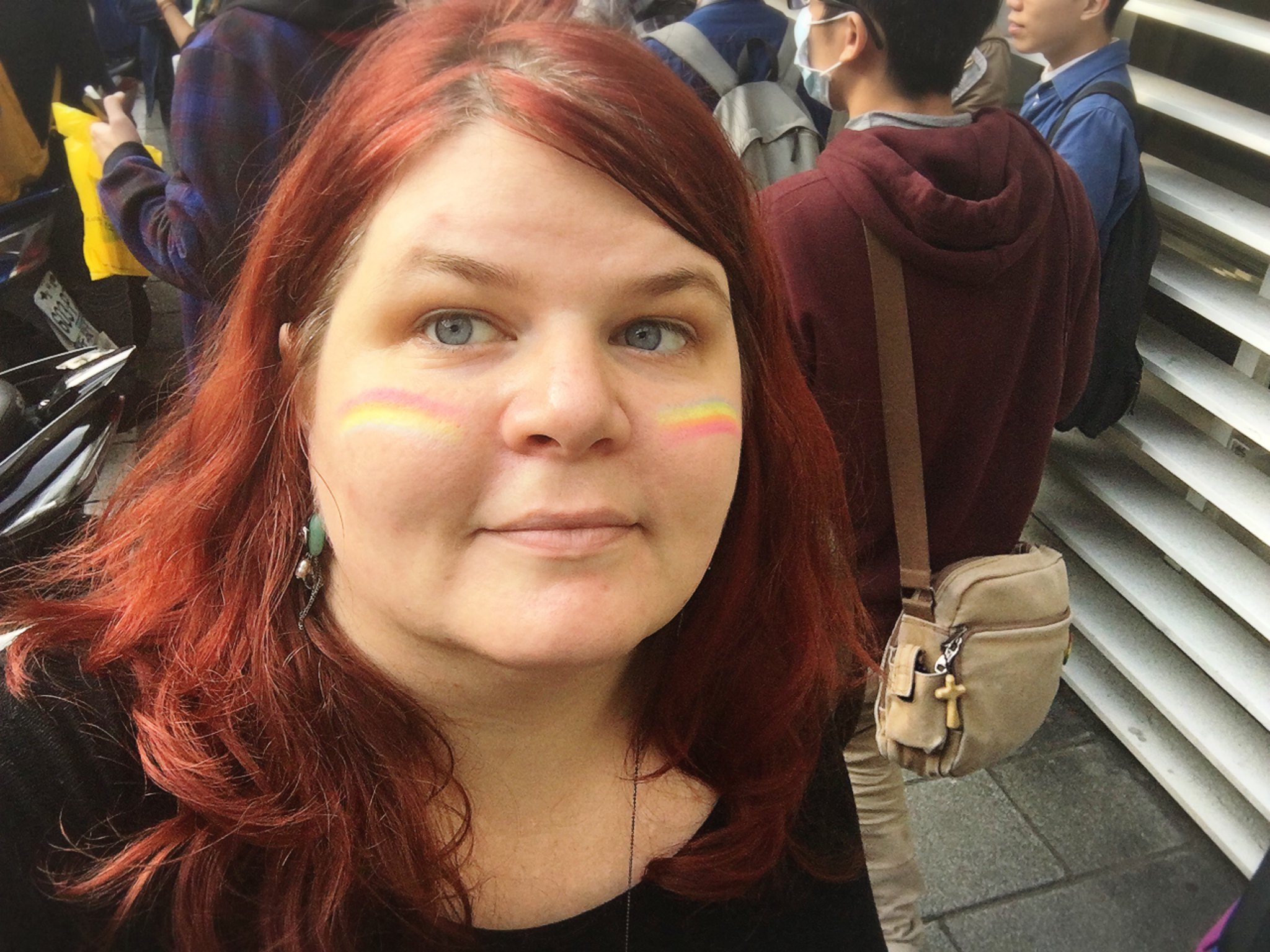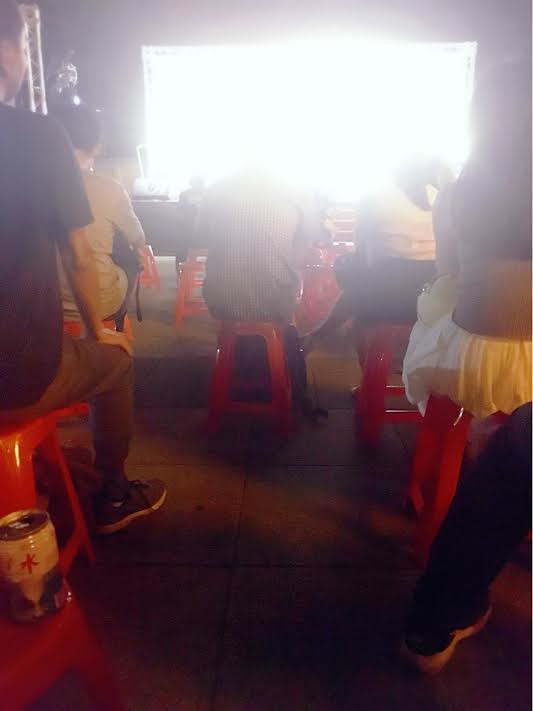
Honestly, I feel the need to write about the Tiananmen Square memorial event held yesterday, June 4th not because I think I have anything unique to say about it that others couldn't, but because this year it felt so lightweight that if we don't note it down for the collective Internet memory, the event as a whole will just float away, as though it never happened. Which is, of course, exactly what the Communist Part of China wants. Nobody likes the world remembering massacres they perpetrated.
The event was mostly in Chinese, with a few speakers addressing the crowd in English. I would like to suggest here that the entire event should be bilingual, and next year's 30th anniversary event might actually make the news, so it would be smart to have translators ensuring all talks are available in English and Chinese. I can follow the Chinese, but I can imagine many foreigners in Taipei who'd be otherwise interested in attending might not, because it's not very exciting to hear speeches in a language you don't understand.
As usual, the event featured a number of speakers from a variety of activist groups across Asia, including recorded talks from Uighur activists, two speakers from Reporters Without Borders (based in Taipei) and a particularly electrifying speech by Vietnamese activist and Taipei resident Trinh Huu Long. Yu Mei-nu, Yibee Huang and Zheng Xiu-juan (Lee Ming-che's boss, although that sounds odd to say in English) were some of the Taiwanese speakers.
Zheng likened China's human rights abuses to its intractable pollution problem, saying that "human rights are like air" - when you're breathing comfortably you don't notice them, but when the pollution ratchets up to PM 2.5, you realize how vital clean air to breathe is, and suddenly you're suffocating. (I'm translating roughly from memory here).
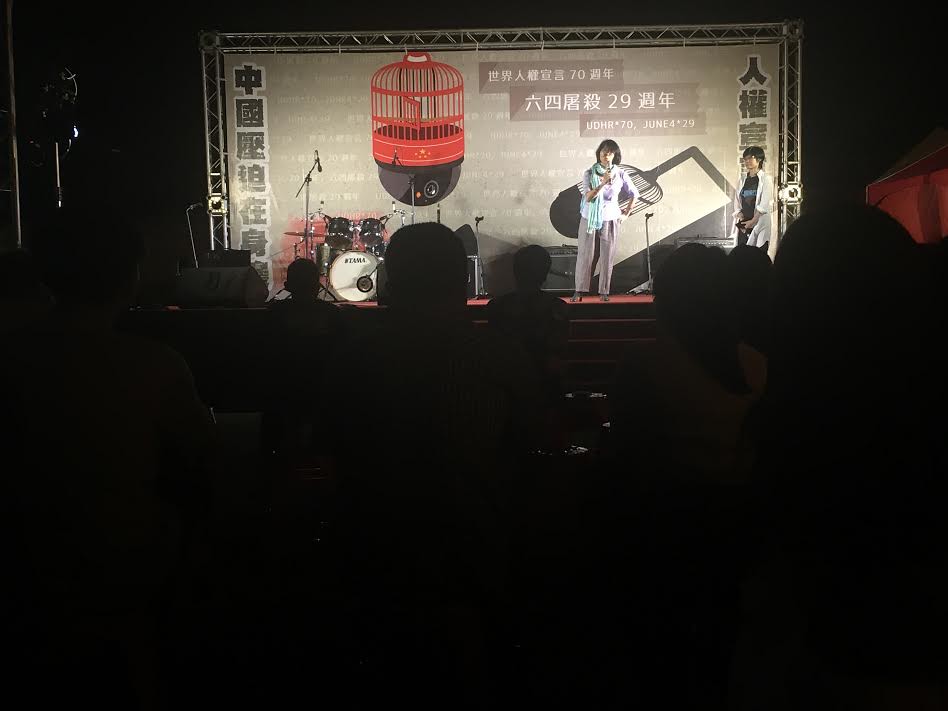 |
| Zheng Xiu-juan (鄭秀娟) and Yibee Huang (黃怡碧) |
There were also performances, including a memorable entrance by Taiwanese rapper Chang Jui-chuan (張睿銓), who sang one of his newer songs, Gin-a. The lyrics (in Taiwanese) discuss Taiwanese democracy movements and freedom fighters post-1949:
Killing after killing, jail after jail...
Hey kid, you must remember
Their blood and sweat, torment and sacrifice
Gave you the air you're breathing
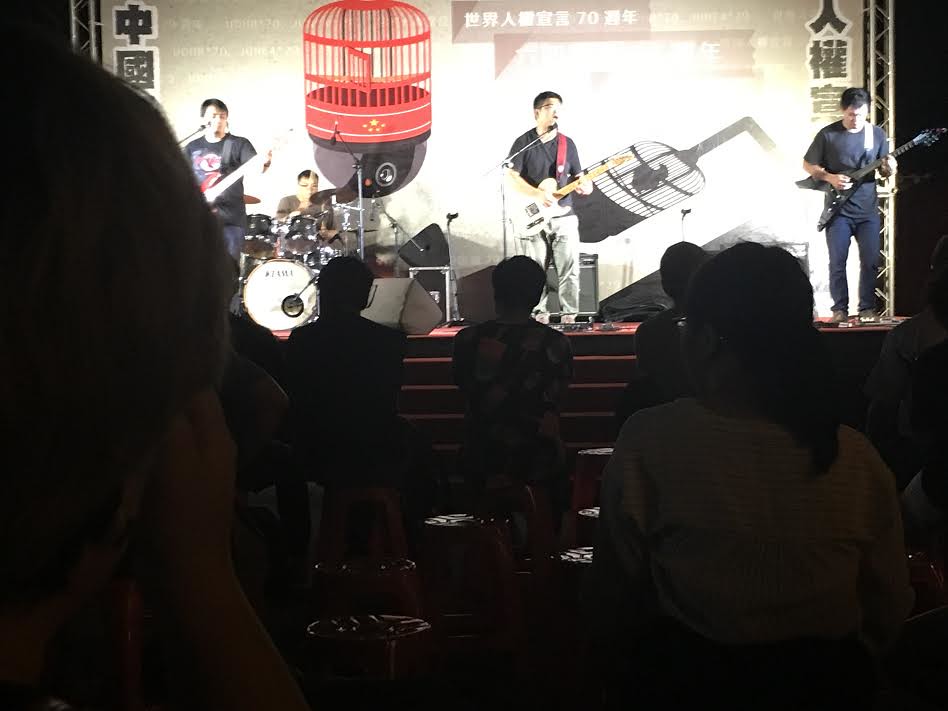 |
| Empty chairs at empty tables |
And that's just it - the 6/4 event, held every year, feels like a part of the air here in Taiwan. It just happens, everyone knows it happens, and they assume others will attend so they take it for granted. It's there, it's always there, maybe next year, someone will show up. I don't need to worry about it. Ugh, Monday night.
What you get, then, is an attendance rate that looks like it might have been less than 100 (but damn it, Ketagalan Media made the effort. We showed up.) Which, again, is exactly what the CCP wants - for us to forget.
In 2014 this event was huge, with camera lights stretching back into the distance and prominent Taiwanese activists showed up - including Sunflowers fresh off the high of electrifying society and about to watch the tsunami they started wash across the 2014 elections. We thought we could change Asia. We thought it was within our grasp...and now there are empty chairs stretching back, and nobody seems to notice the air they're breathing.
Some say it doesn't matter, or is odd to hold in Taiwan, as China is a different country. It's true that China and Taiwan are two different nations. What happens in China affects Taiwan, though, and hosting memorial events so close to China and in venues where a number of Chinese are likely to walk by does make a difference, if a small one. We're on the front lines in the fight against China's encroaching territorial and authoritarian expansionism, so it means something to take a stand - even a small one - here.
In 2016 an entire group of Chinese tourists walked right past the event - this year, someone seems to have ensured that wouldn't happen again. For once, Dead Dictator Memorial Hall was completely devoid of Chinese tour groups and I doubt that was a coincidence. What I'm saying is, somebody noticed.
It also serves as a reminder that Taiwan is not China - we can and do hold these events here, and we do so freely and without fear. We talk about our history, as Chang does in Gin-A. We discuss our common cause, as democracy activists from across Asia did last night. What we do - let's not forget human rights abuses that happen in Taiwan - may not perfectly align with what we stand for, but we talk about it, and we have the space and air we need to work toward something better. In China you can't breathe at all.
But the people who died at Tiananmen 29 years ago are among those whose sacrifice may eventually give China the air it needs to breathe - though I grow less sure that it might happen in my lifetime. Fighters like Lee Ming-che, thrust into the national spotlight and just as quickly forgotten even in Taiwan, give Taiwan the air it needs to breathe. We give ourselves air and beat back the oppressive particulates trying to suffocate us, by standing up for what's right and refusing to forget the massacres of the past.
We must remember. We can't let this event float away on the air, as though it doesn't matter, or it doesn't matter for Taiwan. It absolutely does.
I mean, I get it - I'd like to feel totally safe knowing my freedom and guaranteed access to human rights was not in question. I'd like to sit on the couch and eat Doritos and not even worry about it, because I don't have to. It's tiring to keep showing up. Unfortunately, Taiwan really is on the front line, and we can't do that - we can't pretend it doesn't (or shouldn't) matter.
Next year is the 30th anniversary of the Tiananmen Square Massacre. Mark your calendar now, make sure you're free, and show up.

